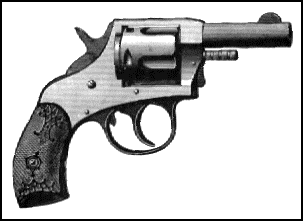Gold
Alan Furst
(Harper/Collins)

Casson really doesn't care to be in this spy business at all. Not because of fear but because as a director, he doesn't see himself as the right actor for the part. But then again, being French, he cannot say no.
Casson's job, outside of liason and getting followed down back alleys around the Gare du Nord, involves blowing up a few barges on the River Loing --- barges filled with gasoline for the German troops in North Africa.
Then there is the matter of transporting a load of machine guns from Marsailles to Paris along back roads in an old truck with lousy brakes and a worn-out clutch where Casson finds himself being followed by a Citroën with two or three Milice Françaie --- the police of the Vichy Government --- in hot and heavy pursuit. This one leads the reader on a fine chase in which, of course, our hero barely makes it into the outskirts of Paris alive. (Like France itself, all roads in this book end up back in Paris.)
Furst has three virtues that make his books as good, in the genre, as one could ask. First are the Raymond Chandleresque characters --- one could describe them as Dickens with ennui. There are pictures of the members of the French Upper Class such as Casson's ex-wife (who, naturally, he ends up sleeping with ... again) with "the narrow eyes, thin lips --- spite and meanness promised, although not all that often delivered." There is one of his contacts in the Old Port of Marsailles:
A strange face, from another century. A black line for a mouth, eyes so deep-set they hid in shadow, sharp cheekbones, a monk's fringe of dark hair. Like a medieval Pardoner in a Book of Hours, Casson thought. A face lit with saintly corruption.
Then there is the mileau: what was it like to live in Paris under the Germans? We get clippings from the Nazi controlled newspapers: victories in the Crimea, submarines torpedoing tankers off the coast of America, the Japanese marching into Singapore. At the time, despite the war, there is great wine, great meals for the rich, the Germans and the friends of the Germans.
There is the new German bureaucracy piled atop the French bureaucracy which is more than doubly bad (have you ever experienced French bureaucracy?) There is the general poverty with new and onerous restrictions: exactly 20 pounds of coal allowed to each family each month.
Finally, there is the adventure of it all --- knowing that because of the way the SR and the FTP work (and the author makes sure that we know what they represent) we suspect that Casson will be, by all rights, murdered before the end of the book. But a worthy author can't murder a worthy character, especially one we have come to have a certain affection for, n'est çe pas? How does Furst solve that problem?
He woke early the next morning and opened the window, watching the night fade from the Paris sky. The rain had stopped, a few black puddles in the cobbled square, and the air smelled like spring. He heard someone in the corridor, then a light knock on the door.
"Yes?" he said.
And that is the last line of the book.